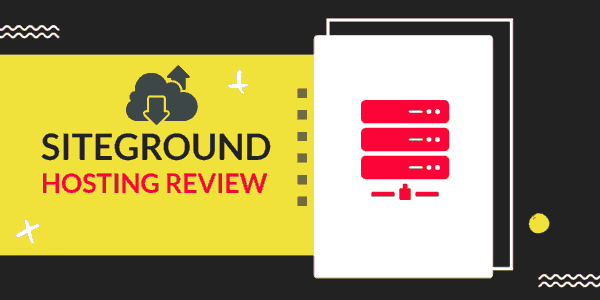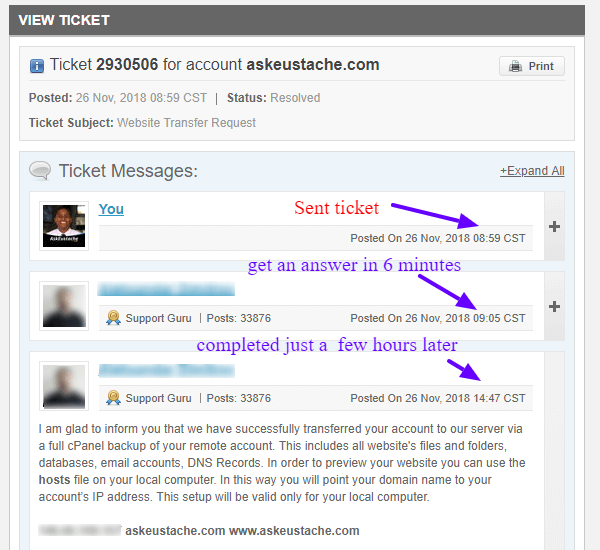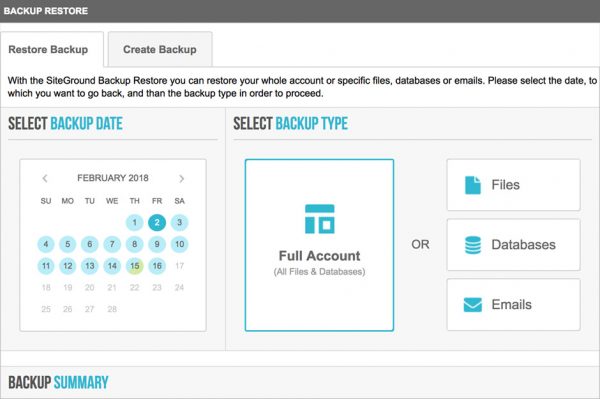I’ve used SiteGround WordPress hosting for AskEustache, this site you’re on, for 3 years.
Now, I am using the free hosting plan on Cloudflare Pages. I went from WordPress on Siteground, to Hugo on Netlify, back to WordPress hosted on Ezoic, and now back to Hugo on Cloudflare Pages.
I experienced different kind of hosting setup.
In this post, I’ll answer the following questions: Is Siteground good? Is Siteground fast?
And, I’ll tell you why I hosted my blog on Siteground instead of the thousands of web hosts available, and why I switched hosting providers.
In summary:
Siteground is one of the best-shared hostings. You get highly optimized servers, built-in caching, and skilled technicians you can interact with via chat, phone, or email.
The service is initially affordable and the quality is premium. I manage to get my site loads in under one second without ads.
It is one of the best hosting recommended by WordPress. They host more than 1,800,000 domains and still deliver quality results.
My ratings:
Overall rating: 4/5
Pros: The CPanel is easy to use; your website loads fast; your site stays up with 99.99% server uptime reliability; you get a free Let’s encrypt and wildcard SSL; fast and knowledgeable support; and affordable pricing.
Cons: less storage space than competitors at the same price.
Get Siteground Hosting at 70% OFF here
Let’s go into the details.
About Siteground

Siteground is an established hosting company founded in 2004. They offer shared, Cloud, and dedicated hosting services.
They can host different types of apps but focus on WordPress and Joomla.
It is an independent hosting company.
Now, time to review what makes its strength.
Siteground Review: The Pros of Siteground Hosting
I found Siteground in December 2010. I signed up for an account in November 2018.
I signed up using a special deal for 3 years.
But in the end, many website owners, including myself, choose Siteground for its advantages. Which are:
High Speed / Performance For Your Hosted Site
Siteground uses the latest technologies for speed and performance. They use:
- Linux servers with NGINX, PHP 8, and HTTP/2 technology
- data centers in 3 continents to store your pages near the country where most of your visits come from.
- SSD drives that are 1000 times faster than regular drives.
- NGINX server technology to speed up the loading of static content.
- “Supercacher” In-house caching plugin for faster pages.
- Free CDN via CloudFlare integration.
From my tests, my site loaded fast. TTFB is the time to send and receive the first byte of information for the server. It includes the time to resolve DNS (nameserver or CloudFlare), the time for the application to generate the page (WordPress and plugins) plus the time it takes for your server to support these works. It involves a lot of parties, not just Siteground.
However, my website TTFB, normally, was under 200ms.
It changes from time to time with external requests. With Ezoic, an ad management network making me up to $40 EPMV (effective earning per 1000 visitors), the TTFB is often under 400ms.
This is one of the fastest for well-established hosting companies.
Security against common online threats
Siteground uses secure isolated accounts on shared servers. It means that if a customer site hosted on the same server is infected, yours will not.
In addition to that, Siteground stores automated backups of your website daily and store them for 30 days.
They have built-in anti-robot AI to stop brute-force attempts.
And, Siteground partners with CloudFlare so you can integrate it easily and protect your sites against some bots and attacks.
Hosting security measures is just one of the required steps to secure your blog. But it is a common breach. Siteground secures your blog at that level.
Responsive and knowledgeable Support
Siteground claims to process 1500+ tickets, 1000+ phone calls, and 3000+ chat requests per day.
Still, their chat support is excellent. They offer support via email too and their knowledge base is full of solutions for problems a blog owner may encounter.
In my experience, support was fast. And the support team knows how WordPress and hosting work.
I had better support when I first started with them. Now that I left, try the chat support before you join.

I got an email answer within 6 minutes, actually.
But chat requests were almost instantly.
99.99% Uptime guarantee
They use Linux Containers technology to handle traffic spikes and guarantee an uptime of 99.99%.
They monitor their servers to prevent and fix issues.
Nobody needs a website down when you should make money from it instead because you’re going viral. Siteground can handle if you get viral on Pinterest, Facebook, Reddit, or if you get mentioned on a high-traffic site such as medium.
One caveat: Siteground will give you notice, then make your site unavailable if go further your plan limits.
Free Migration
With Siteground plans, except on StartUp, you get free website transfer. Or you can use their plugin to do it yourself.
It is good if your website has been hosted somewhere else and you want to move to Siteground. I got my website moved without hassle or downtime.
1 click undo website mistakes + automatic backups
Siteground automatically generated a backup for your website once each day. It stores it for 30 days.

But, you can also create up to 5 back p on demand when you make significant changes to your website.
You don’t have to pay for a separate backup service. With the GoGeek plan, you get it for free. Options are limited in plans with fewer privileges.
Ready For E-Commerce
Siteground GoGeek plan has PCI compliance, exactly what you need to process credit card payments online.
If you plan to start an online store, Siteground is ready for e-commerce.
Affordable Pricing
Siteground starts at $3.95 per month for the starter plan; $5.95 per month for GrowBig; $11.95 for GoGeek. You can use that pricing for up to 36 months.
Then, on renewal, you’ll pay $11.95 per month for the startup plan, $19.95 per month for the GrowBig plan, and $34.95 for the GoGeek plan.
I recommend you pay for 36 years to get more discount.
I paid $430.2 for 3 years while the regular rates would cost $1236.6 for 3 years or $412.2 per year. I saved $806.4 and I don’t have to worry about that bill for the next 36 months following the billing.
I was willing to pay the hosting fees. It’s required. A month’s hosting costs less than what my blog earned in one day. So, I was just happy with the discounted prices.
Go to Siteground to learn more.
Free Let’s Encrypt SSL
You need SSL to add another level of security to your website. But you need it to speed up your site and track affiliate performance too.
You’ll prevent malicious scripts from redirecting your traffic to someone else site. You’ll retrieve the referrer for your affiliates’ links if you were using Flexible SSL from CloudFlare (you’ll change it to full). You’ll get a faster loading site with resources loading at the same time without blocking the rendering of pages.
I try to explain it without using technical terms, but it means a lot in terms of performance. Plus, Google slightly favors websites using HTTPS.
You get normal SSL and wildcard SSL if you’re using subdomains.
Siteground Cons
- Siteground setup is free unless you pay for a month only. In that case, you’ll pay a setup fee. I don’t recommend paying for a single month anyway. You get 30 days money-back guarantee. So, there is no risk in paying for 12 up to 36 months.
- Resources are limited on shared hosting plans. Which is good. It prevents abuse and keeps Siteground awesome as it is. But I had to learn how to optimize WordPress for less CPU usage.
Siteground FAQ and Note
Does Siteground set limits on how many visits you can receive?
No. To be transparent, Siteground states that each plan is suitable for a certain amount of traffic:
- StartUp is suitable for ~10,000 visits
- GrowBig is suitable for ~25,000 visits
- GoGeek is suitable for ~100,000 visits.
It is no limit on how many visits you can receive. But estimation of how many visits will consume your allowed server resources.
The table below includes program executions and CPU seconds limit per plan.
To handle more traffic (up to 5 times the estimation), use the free Siteground SuperCacher plugin, serve pages via free Cloudflare, and stop attacks on dynamic pages such as wp-admin.
The best option is to deliver static cached pages using CloudFlare or Ezoic. No resources are used for those visits as CloudFlare or Ezoic deliver stored pages without contacting your server.
It took me 8 years to do proper research on that and finally sign up for a Siteground account.
What if one of my websites goes viral?
Siteground can handle surges in traffic.
If you go above the limits in resources, you’ll get an email with steps to take to fix the issues. Maybe upgrade or optimize your website.
Then after two notices, if you don’t fix the problem, your site will be locked until the next billing cycle.
So, no surprise there.
Note
These are things I cannot list as cons. They are not bad. But they are things you must be aware of before you join. I talked about some of them briefly earlier.
- renewal pricing is higher. The first payment is a discounted price. However, they are transparent and list the first charge and renewals for you.
- limits on CPU usage, account executions (server-side processing languages), and inodes (files and folders). This is normal as it is technically impossible for a server to function without limits. You’ll find this info on comparison page. However, up to 40,000 executions a day and up to 800,000 executions a month are enough for any website that should be on a shared server.
- they offer only Linux hosting.
Siteground Review Verdict: Do I recommend them?
Yes, Siteground is good, as I said.
I recommend Siteground for shared hosting.
However, with Siteground you get a shared server. A good alternative is Cloudways from which you get cloud hosting at the same price.
If you need help starting a blog, I have a tutorial on how to install and configure WordPress.
Read next:
- Cloudways Promo Code | Save Big on Managed Hosting in 2026
- Best Free Hosting Services (For Static Sites and WordPress) in 2026
- Best Domain Registrar in 2026 (How to Pick The Right One)
- Best Web Hosting Sites for 2026: Pick The Right Host For Your Blog



![Best 5 Black Friday Web Hosting Deals (2025) [up to 98% OFF]](https://askeustache.com/images/bfcm-web-hosting-deals-300.png)
![A2 Hosting Black Friday & Cyber Monday Deal 2025 [$1.99/mo]](https://askeustache.com/images/a2hosting-black-friday-deal-300.png)



